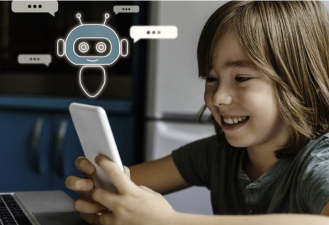In recent years, with the popularity of artificial intelligence tools, more and more middle school students have begun to use AI to assist in completing homework. Just take a photo of the question, and AI can quickly generate the answer without inputting instructions or thinking. This type of "AI homework assistant" has quickly become popular on major social platforms and learning apps, attracting widespread attention from teachers and parents. A survey data shows that about 46% of students use AI tools to complete homework to varying degrees, especially Chinese, English and liberal arts subjective questions have become AI "high-incidence areas". So, how to judge whether children are using AI to do homework? How to guide children to use AI reasonably instead of relying on it to "take shortcuts"?

What problems may students bring when they frequently use AI?
Knowledge cannot be internalized, and learning effects are greatly reduced
Limited thinking ability and language expression ability
In the long run, it affects the competitiveness of further studies and employment
The issue of integrity cannot be ignored
How can parents judge whether their children use AI?
Parents can judge whether their children use AI homework assistants from the following points:
Is the homework level suddenly "leaping"?
Is the answer "excessive"?
Is the homework completed unusually fast?

How should parents guide their children to use AI correctly?
Teach children to "learn to learn" with AI
Instead of banning them, it is better to teach children how to use AI to fill in the gaps. For example:
- Let AI generate a summary of knowledge points or a mind map
- Ask AI to simulate exam questions for self-test
- Use AI to help make English word cards or recite materials
Guide children to "digest and absorb" AI content
Encourage children to actively share what they have learned in school
Focus on the process rather than the result
